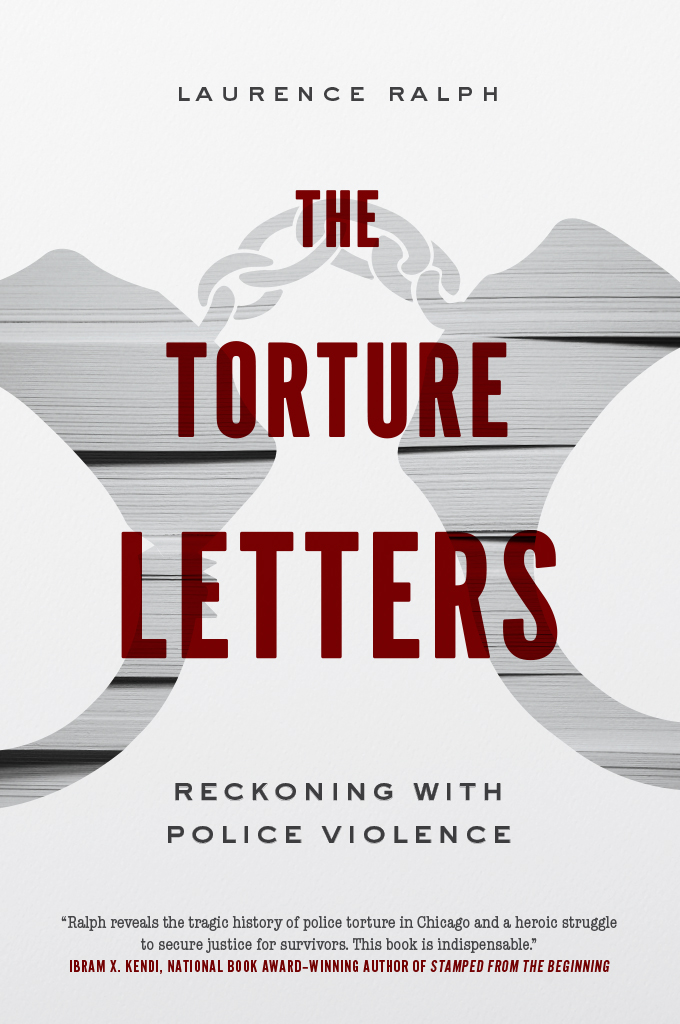
The Torture Letters
The Torture Letters
Reckoning with Police Violence
LAURENCE RALPH
The University of Chicago Press
Chicago and London
The University of Chicago Press, Chicago 60637
The University of Chicago Press, Ltd., London
2020 by Laurence Ralph
All rights reserved. No part of this book may be used or reproduced in any manner whatsoever without written permission, except in the case of brief quotations in critical articles and reviews. For more information, contact the University of Chicago Press, 1427 E. 60th St., Chicago, IL 60637.
Published 2020
Printed in the United States of America
29 28 27 26 25 24 23 22 21 20 1 2 3 4 5
ISBN-13: 978-0-226-49053-3 (cloth)
ISBN-13: 978-0-226-65009-8 (paper)
ISBN-13: 978-0-226-72980-0 (e-book)
DOI: https://doi.org/10.7208/chicago/9780226729800.001.0001
Library of Congress Cataloging-in-Publication Data
Names: Ralph, Laurence, author.
Title: The torture letters : reckoning with police violence / Laurence Ralph.
Description: Chicago ; London : The University of Chicago Press, 2020. | Includes bibliographical references and index.
Identifiers: LCCN 2019005353 | ISBN 9780226490533 (cloth : alk. paper) | ISBN 9780226650098 (pbk : alk. paper) | ISBN 9780226729800 (e-book)
Subjects: LCSH: Police brutalityIllinoisChicago. | African AmericansViolence againstUnited States. | TortureUnited States.
Classification: LCC HV8148.C52 R35 2019 | DDC 363.25/4dc23
LC record available at https://lccn.loc.gov/2019005353
 This paper meets the requirements of ANSI / NISO Z39.48-1992 (Permanence of Paper).
This paper meets the requirements of ANSI / NISO Z39.48-1992 (Permanence of Paper).
Contents
Southern trees bear strange fruit
Blood on the leaves and blood at the root
Black bodies swinging in the southern breeze
Strange fruit hanging from the poplar trees
WRITTEN BY ABEL MEERPOOL (1937),
SUNG BY BILLIE HOLIDAY (1939)
Once the classic method of lynching was the rope.
Now it is the policemans bullet.
WILLIAM PATTERSON , CIVILRIGHTSCONGRESS (1951)
A Half Century of Torture
Beyond these verified instances, in 2003 journalists documented other episodes of torture before and after these dates, and elsewhere in the city, placing the total number of survivors of police torture in Chicago at roughly two hundred.
The numbers themselves are astounding enough, but they offer only the surface of this horror. Even now, after researching the topic of police torture for fourteen years, the reality is hard to grasp but impossible to doubt: For almost a half century, over and over and over again, police officers who took an oath to protect and serve the residents of Chicago have instead done the opposite. They have beaten residents of Chicago. They have electrocuted residents of Chicago. They have tied residents of Chicago to radiators and left them there for hours. They have suffocated them with typewriter covers and plastic bags. They have raped them.
The scope of the problem is so vast that, after decades of denial and avoidance, in 2009, the state government created the Illinois Torture Inquiry and Relief Commission. Although it was founded in the hopes That figure does not take into account the three to five new torture claims the commission still receives each week.
Despite the ongoing nature of the problem, this book takes the criminal suspects who were systematically subject to sadism in the 1980s and 1990s as its point of departure. They ignited what is widely known today as the Chicago police torture scandal. With some rare exceptions, all the torture survivors were men, and Black men in particular. Overwhelming evidence suggests that multiple generations of police have systematically targeted Black men, making this the story not just of police brutality but alsoas excessive policing so often isof institutional racism. The reality of institutional racism and the circumstances that led to police torture all those years ago remain largely unchanged. As a result, police torture is very much an ongoing problem, as relevant today as it was when the first allegations of torture surfaced in 1982, prompting lawyers to dig deeper and find out that systematic torture in Chicagos precincts had begun at least a decade earlier.
As well see, police torture in Chicago is built on a contradiction: the existence of torture is, of course, a secret, and yet it is a secret that everyone seems to know about. Thus, we can understand police tortureand hope to change the circumstances that allowed it to happenonly if we understand it as the open secret that it is.
It goes beyond just the police department, said Flint Taylor, the lawyer who has tried many of the police torture cases in Chicago. When I interviewed him in the summer of 2017, Taylor said that the open secret extends to judges as well, because many of them were former prosecutors who worked hand in glove with the cops for convictions. They were in those station houses when the confessions were being taken, Taylor said. Whats more, some of the prosecutors were former police officers themselves. Theres a web that starts with suspected criminals on the streets and it ends with some of the most powerful people in the city, Taylor said. He uttered these words at the end of an hour-long conversation in which he described the complex network that connected cops to judges to prosecutors to politicians. That web, he said, is a major roadblock to the truth in these cases.
I have spent more than a decade trying to figure out what this truth consists of. What is police torture? Why do certain officers commit horrific acts in the name of justice? And what can we do about it? In pursuit of the truth about police torture, this book explores the web that Taylor describes. I show that many people who work for the city of Chicagowhether serving on the police force, or in the legal system, or in the city and state governmenthave chosen to remain silent about torture because of this delicate tangle of connections. They have wanted to avoid risking their careers, their safety, and, in some cases, their lives. Those who stayed quiet also became masters at looking the other way.
The open secret is what people in power know but refuse to say about police torture. And it is why in writing this book, I have often felt discouraged. If justice had been denied torture survivors for so many decades, if so many powerful people were in on the secret, I have often worried that nothing I wrote would be meaningful. Eventually, I came to understand that the true goal of my research was less about exposing police torture than investigating the openness of the secret. Why have so many powerful and influential people in Chicago been unwilling to publicly acknowledge acts of extrajudicial police force such as torture?
Torture is a practice that people in power have long done against the otherand that other has been defined in various ways throughout US history. For most of US history, Black people have been the most obvious other in what Michelle Alexander has called a racial caste system. Within this system, those at the bottom tend to be Black, and they are the farthest away from the privileges and protections that the country gives to the white people at the top. Because Blacks, brought to this country as enslaved people, have occupied the lower rung of this social order for so long, torture has always been an essential element of the African American experience. This is why racial violence is another major focus of this book. The open secret of police torture reveals important lessons about the relationship between torture and racism in this country.

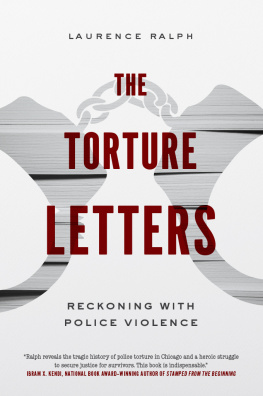
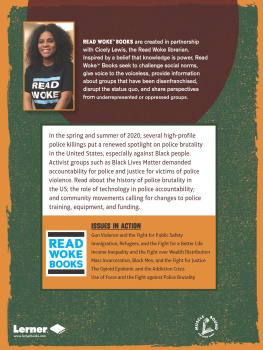

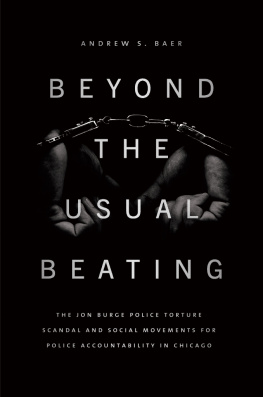
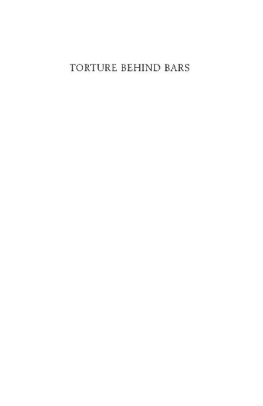

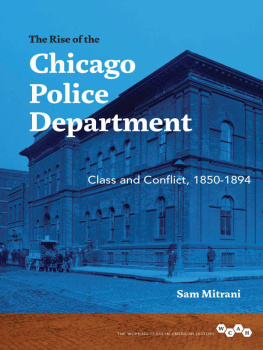
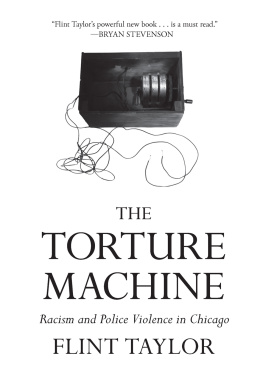
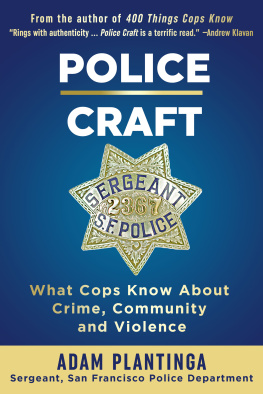
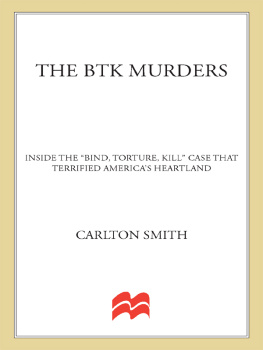
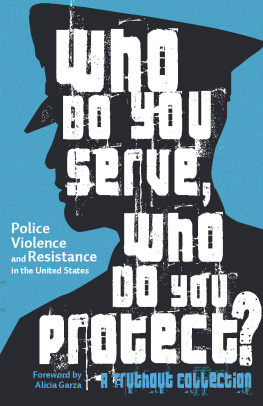
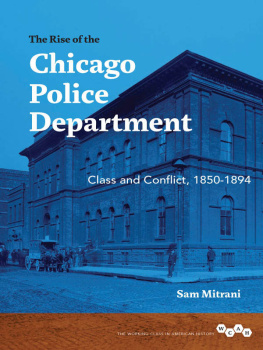

 This paper meets the requirements of ANSI / NISO Z39.48-1992 (Permanence of Paper).
This paper meets the requirements of ANSI / NISO Z39.48-1992 (Permanence of Paper).